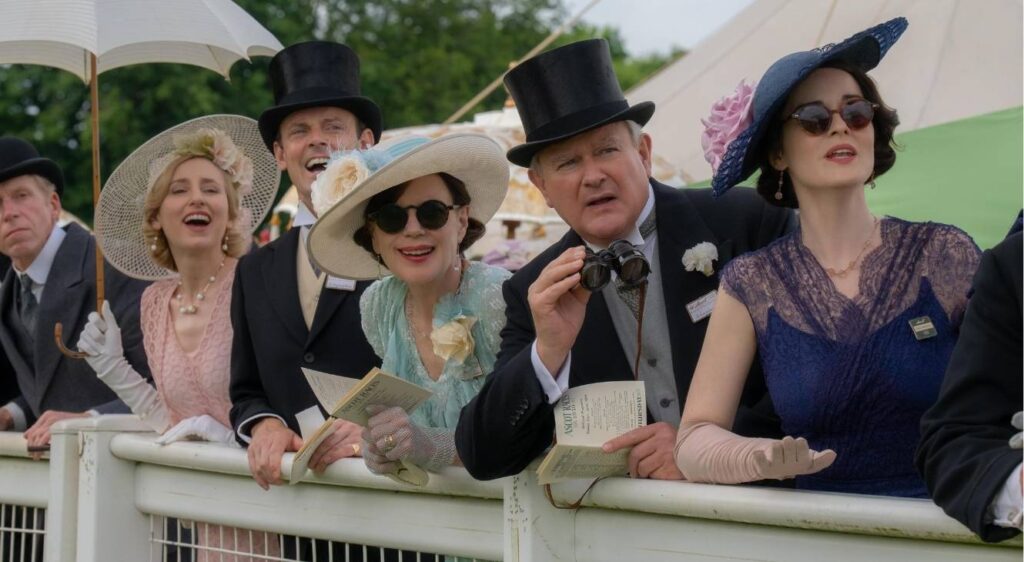Final Episode of Downton Abbey Offers a Satisfying Conclusion

A Bittersweet Conclusion to a Beloved Saga
Set in 1930, the final chapter of Downton Abbey brings the Crawley family back into the spotlight, showcasing their continued life among the British aristocracy. However, this time, the family faces new challenges. Mary Crawley, played by Michelle Dockery, is navigating the complexities of divorce and societal isolation, while the ripple effects of the 1929 Wall Street crash begin to impact their once-stable world. This sets the stage for a story that explores both personal and economic struggles.
The film, written by Julian Fellowes and directed by Simon Curtis, offers a satisfying conclusion to the series. It manages to balance nostalgia with a forward-looking perspective, ensuring that each character’s journey reaches a meaningful end. The narrative also reflects on the evolving dynamics between the aristocracy and the working class, particularly through the experiences of the staff at Downton Abbey.
The Evolution of the Staff
Among the key characters, the staff members—such as head chef Daisy, butler Andy, Mrs. Patmore, and others—continue to make their own life changes. Their stories intertwine with those of the Crawleys, highlighting shifts in the rigid class structures that once defined the household. One notable subplot involves Isobel Merton, portrayed by Penelope Wilton, who plays a pivotal role in facilitating a more inclusive environment at the county fair. This small but significant moment underscores the gradual breakdown of traditional class barriers.
Despite these developments, the film doesn’t fully dismantle the class system. Instead, it focuses on the individual journeys of its characters, emphasizing the need for change while acknowledging the past.
The Earl of Grantham's Struggles
Robert Crawley, played by Hugh Bonneville, embodies the challenges of letting go of the past. As a stubborn patriarch, he has often been a source of frustration, but the film provides him with a poignant introspection. Bonneville delivers a standout performance, capturing the complexity of his character with grace and dignity.
Cora Crawley, played by Elizabeth McGovern, also shines in this final installment. She navigates the challenges of her family, including dealing with her feckless brother Harold, played by Paul Giamatti. McGovern’s portrayal highlights her strength and resilience, especially in the absence of Violet, who passed away in the previous film.
Mary's Growth and Edith's Transformation
Michelle Dockery’s portrayal of Mary continues to impress, showcasing her growth into a more compassionate and wise character. Her relationship with her sister Edith, played by Laura Carmichael, adds depth to the narrative. Edith, once marked by insecurity and jealousy, now exudes confidence and compassion. Her ability to channel her grandmother’s wit and grace makes her a compelling presence in the film.
Tom Branson's Underdeveloped Arc
While many characters receive satisfying conclusions, Tom Branson, played by Allen Leech, feels underdeveloped. His late arrival and limited screen time leave much to be desired. Although his personal life is depicted, the film misses an opportunity to explore his revolutionary zeal and connection to Ireland. This oversight is a disappointment, given his significance in expanding the Crawley family’s worldview.
Comic Relief and New Characters
The film also introduces new characters, such as Mr. Molesley, played by Kevin Doyle, and his interactions with famous playwright Noel Coward. These scenes provide much-needed comic relief, offering a fresh perspective on the upper class. The trio of visitors, including Thomas Barrow and Guy Dexter, add humor and depth to the narrative.
A Satisfying Farewell
Overall, Downton Abbey: The Grand Finale serves as a fitting end to the beloved series. It balances nostalgia with a forward-looking perspective, ensuring that each character’s story reaches a meaningful conclusion. While some arcs feel underdeveloped, the film succeeds in delivering a bittersweet yet satisfying farewell to the Crawley family and their staff.
With its rich storytelling and nuanced characters, the film honors the legacy of Downton Abbey, leaving audiences with a sense of closure and appreciation for the journey undertaken over the years.
Post a Comment